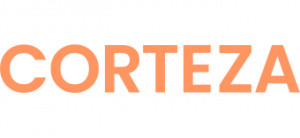Cloud technology has been great for organisations of all types across the world, delivering inter-related ecosystems, keeping costs down and driving productivity. However, there’s still a key problem that needs to be addressed – there are simply not enough clouds. The market currently resembles an oligopoly, with a handful of providers dwarfing all others in size, scale and reach.
The world’s 26 richest people own as much as the poorest 50% and just 100 companies (mostly in the oil industry) are arguably responsible for 71% of the world’s carbon emissions. It’s tempting to draw a sneaky correlation between wealth inequality and climate problems, but that would be unscientific (to say the least!) and not the objective of this article in any case. However, there is some evidence that we’re also well on our way to creating data oligopolies. IDC reckons that half of the world’s data will be stored in clouds by 2025, so if dominance of the cloud industry continues as is we can be quite sure of exacerbated industry inequality.
Of course, sensible regulation can do much to offset the imbalances in the cloud industry, but technology has its part to play too. There must be credible user-friendly and administrator-friendly alternatives to the giant public cloud players. At Corteza, the Digital Work Platform for Humanity, we’re determined to deliver a private cloud solution for every organisation that values its data. Ideally, we’d like to see a culture where organisations look firstly at their private cloud working requirements, then complement them with public cloud offerings. That would represent an important inversion of the current state of affairs.
Balancing the global cloud economy is a big, yet still attainable objective. Overall, it’s about keeping things practical and not denying common sense. Here’s a few things we considered as we got up and going:
It all Begins with Identity
Federated identities are increasingly important technologies, in particular when it comes to supporting hybrid software strategies. Though only a fraction are presented at the frontend, at the heart of the Corteza platform we support over 50 different providers of federated identity – and it’s not difficult to extend this support. This approach allows us to find common ground with most web application software in the world and is a key enabler for organisations who wish to inexpensively integrate third party software into their Corteza deployment. Tailoring your private cloud work platform should be straightforward, after all.
Politics is local, Trade Crosses Borders and Standards can be Global
Corteza promotes standards as a catalyst for driving global community and adoption. A work platform must be architecturally “open”. Growing an ecosystem of providers is impossible without establishing shared standards for communication, storage, API’s and other services which impact integration with third party software. Private Corteza clouds can be implemented and configured to support local decision-making and legislation by default (as opposed to the complex and sometimes legally fuzzy, retro-fitted approaches promoted by the giant, centralised public clouds), while our standards-based approach encourages efficient online collaboration with just about any modern provider.
Independent Institutions have a Role to Play
Markets are a great mechanism for fulfilling many social requirements. However, independent institutions serve a valuable role in regulating activity in the public interest. The Corteza project is owned and operated by the Commons Conservancy Foundation. In the world of software, knowing that your work platform is safe from trademark, copyright or patent games is source of stability. Knowing that the software code will always be available to you, irrespective of whether you choose a service provider to host the platform or self-host, is another serious advantage.
User Experience (UX) is Key
While not a fool’s game, expecting users to downgrade to inferior software UX in return for creating a better or safer digital world hasn’t had overwhelming success as a marketing or commercial tactic. While “you are what you eat” has had delivered some strong results for the organic food market, it helps a lot that the UX of organically grown food (i.e. its taste) is often better than that produced through intensive farming methods. If you spend over 8 hours a day in front of your computer, you’ll know that poor UX can be a big distraction from your productivity. Corteza places strong emphasis on UX, ensuring that is pleasing, modern and relevant across the platform portfolio.










Leave a Reply
Want to join the discussion?Feel free to contribute!